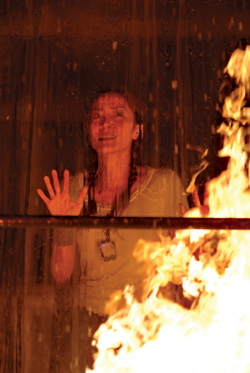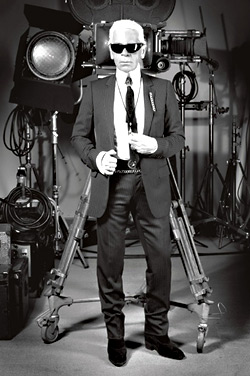It is the year 2057. Approximately 5 billion years ahead of schedule, the sun is beginning to die. In a desperate attempt to keep the lights on, global resources have been directed toward a solution, presumably with input from Al Gore and the writers of Armageddon. A team of experts aboard Icarus II will deposit a bomb the size of Manhattan inside the fading light, thus—theoretically—giving birth to a vigorous new star. As it rockets toward the fate of mankind, Danny Boyle’s Sunshine alerts all passengers that they have boarded a first-class head trip. Big Questions are posed. (What is man’s role in the universe? What happens when you stare into the abyss? Is Chris Evans hotter with long hair or short?) Ethical Quandaries are dramatized. (How do you reframe the basic tenets of civilization when faced with its imminent extinction?) Ideas scintillate over the surface of Sunshine without ever quite igniting, but at least the movie sparkles. What it doesn’t do is cohere. Action flick, metaphysical adventure, incoherent allegory, and horror film all at once, this mad multitasker has the agenda of a dozen movies. Funny thing is, it works. Just as Boyle’s Trainspotting spoke to ’90s disaffection and 28 Days Later to post-9/11 anxiety, Sunshine suits a climate where the possibility of ecological apocalypse is no longer the stuff of science fiction.
Sunshine: Not Quite Trainspotting in Space








